This website will look much better in a web browser that supports web standards, but it is accessible to any browser or Internet device.
| Louise Ackers University of Leeds |
|
|
Louise Ackers is Professor of European Law and Director of the Centre for the Study of Law and Policy in Europe (www.law.leeds.ac.uk/cslpe) at the University of Leeds. Her research is concerned with the social dimension of EU law and, especially, the social and legal issues around mobility within the EU, focusing on the gender dynamics of these forms of movement and the specific issue of highly skilled, scientific mobility. Her publications on these topics include Shifting Spaces: Women, Citizenship and Migration within the European Union (Policy Press, 1998), Senior Citizenship? Retirement, Migration and Welfare in the European Union (Policy Press, 2002), and A Community for Children? Children, Citizenship and Internal Migration in the EU (Ashgate, 2004). Her recent research projects include: Science on the Move: Assessing the Impact of the Marie Curie Fellowship Scheme under Framework Programmes 4 and 5 (funded by the European Commission); Mobility and Excellence in the European Research Area (funded by the ESRC and the Anglo-German Foundation); Researchers in Higher Education Institutions (funded by HEFCE); and Assessing the Impact of the Roberts' Review Enhanced Salaries and Stipends on Postdoctoral and Postgraduate Positions (funded by RCUK). |
| David Beeson InFocus Health |
|
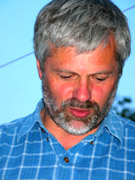 |
David Beeson has a background in French history of thought and a PhD which led to one of the few biographies of a great but (still) obscure French scientist and philosopher of the eighteenth century, Pierre-Louis Moreau de Maupertuis. David has been working in health computing since 1985. He has experiences of a wide range of companies covering products from hospital information systems to management information and consultancy services such as benchmarking. Since 1995, he has been living and working in France , Germany and Switzerland as well as the UK. The companies he has been involved with have varied from small teams of as few as three people to major multinationals, the biggest the McDonnell Douglas corporation. Currently, he is a director and shareholder of Infocus Health, a nine-strong company providing Executive Information systems to hospitals in the UK and more recently in Switzerland. |
| Ana Mª Cerdeño-Tárraga Senior Computer Biologist, Pathogen Sequencing Unit, Wellcome Trust Sanger Institute |
|
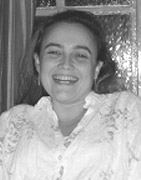 |
Ana Mª Cerdeño-Tárraga was born in Madrid (Spain) in 1968. She successfully completed her Biological Sciences Degree at the Universidad de Alcalá (Spain), which included an Erasmus year at the University of East Anglia (Norwich, UK). Soon after finishing her MSc in Biotechnology she was awarded an individual Marie Curie Fellowship under Framework Program IV in order to do her PhD at the Department of Genetics in The John Innes Institute on molecular microbiology. With her PhD finished and planning on staying in the UK but thinking about the exciting possibility of moving research fields, she moved to the Pathogen Sequencing Unit at the Welcome Trust Sanger Institute at the end of 1999, focusing her wok on the annotation and analysis of bacterial pathogen genomes - exchanging the laboratory bench for the computer desk - where she is now a Senior Computer Biologist and has authored and co-authored a number of papers published in high-impact scientific journals. She also coordinated the MCFA UK National group and vice-chaired and chaired the Marie Curie Fellowship Association for a number of years. |
Antonella Di Trapani |
|
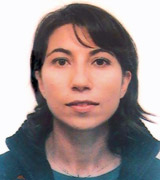
|
Antonella Di Trapani was born in Palermo, Italy in 1973. She got a Laurea in Chemistry from the University of Palermo, Italy, in 1998 after spending a short time in University College London, UK, as Erasmus student. She received her PhD from Trinity College Dublin, Ireland, funded by a EC TMR Research Network on ‘Nanometer Size Metal Complexes'. After her PhD she went to do a Post-doc in England, funded by a Marie Curie Industry-Host Fellowship, in the same company where she now works as a Research Scientist. She has been Treasurer of the Marie Curie Fellowship Association since October 2005. |
| Daniel Gros CEPS |
|
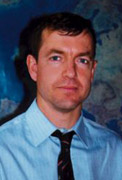 |
Daniel Gros is the Director of the Centre for European Policy Studies, the leading think tank on European affairs. He has served on the staff of the IMF, as an advisor at the European Commission, and as visiting professor at the Catholic University of Leuven and the University of Frankfurt. He has advised the governments of Russia, Ukraine and other Central and Eastern European countries on trade and exchange rate matters and their relations with the EU. He is currently advisor to the European Parliament and member of the Conseil Economique de la Nation (2003-2005); 2001-2003 he was a member of the Conseil d’Analyse Economique (advisory bodies to French Prime Minister and Finance Minister). Since April 2005 he is President of San Paolo IMI Asset Management. |
| Tine Huyse Natural History Museum, London |
|
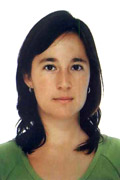 |
Tine Huyse was born in Belgium, 1976. She studied at the University of Leuven where she obtained her Licentiate in Biology in 1998, and worked at the University of Exeter as part of her Lic. Thesis. Four years later she obtained her PhD at the University of Leuven (2002). During her PhD she acquired research experience in foreign laboratories (France, Sweden, The Netherlands) and received several grants from the European Union and Belgian Government to carry out the necessary sampling campaigns throughout Europe. She has given numerous oral presentations at national and international meetings, one of which resulted in the First prize of the Young Scientist Awards at 8th European Multicolloquium of Parasitology (Poznan, Poland). She co-organized the European meeting for PhD Students in Evolutionary Biology in 2000 and her PhD thesis was awarded the Van Oye prize by the Royal Belgian Academy for Science and Arts. After her PhD she obtained a FWO travel grant for postdoctoral research at the Natural History Museum in London, where she is currently holding a Marie Curie Research Fellowship. Her research interests include transmission strategies and speciation patterns in animal parasites and she is developing mitochondrial DNA markers to study the evolutionary history of an Atlantic salmon pathogen. |
| Janet Metcalfe Director, UK GRAD Programme |
|
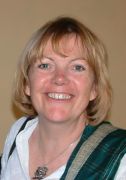 |
Janet Metcalfe is an independent educational consultant specialising in training and professional development for researchers. She is currently director of the UK GRAD Programme, which through a network of regional university-based Hubs and a Centre for Excellence in Cambridge, provides universities with access to resources, advice and networks to support the development of researchers’ personal and professional skills. Janet is also a member of the independent evaluation team for the New Route PhD and an external advisor to the University of Oxford’s Centre for Excellence in Preparing for Academic Practice. She is co-author of the pamphlet ‘Employability and Doctoral Research Postgraduates’ as part of a series on employability for the Higher Education Academy. She led the joint UK Funding Councils’ project to improve the quality of postgraduate research training, in conjunction with the UK Council for Graduate Education (UKCGE). |
| Dagmar Meyer University of Göttingen, Germany |
|
 |
Dagmar M. Meyer was born in Germany in 1967. She studied Mathematics and Physics at the Universities of Heidelberg, Cambridge and Barcelona (UAB). After her PhD she went to France for a post-doc at the Université Paris 13, funded first by the french Ministry of Foreign Affairs and then by a Marie Curie individual fellowship. In 2001 she returned to her native Germany where she currently holds a position as Assistant Professor of Mathematics at the University of Göttingen. Since her time in Paris Dagmar has been actively involved in the Marie Curie Fellowship Association (MCFA), first as one of the co-ordinators of the French national group, then at European level holding various positions within the Administrative Board (until October 2005), including Treasurer, Secretray General and Chair. Dagmar's work for the Association has allowed her to get an inside view on many issues related to scientific mobility and career progression of early career researchers, both through many personal contacts with Marie Curie fellows from across Europe and by participating in a number of joint projects with other European organisations such as Eurodoc, Euroscience or the European University Association. Since the beginning of 2005 Dagmar has also been a member of the European Commission's External Advisory Group on Human Resources and Mobility. For more details please see the interview 'Helping Fellow Nomads' and the cross-interview 'Young researchers in motion' on the official Marie Curie Actions website (both of them from 2004). |
| Jan Misker University Relations Manager EMEA Recruitment, Philips Electronics B.V., The Netherlands |
|
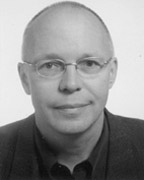 |
Jan Misker was born and educated in the Netherlands and obtained his degree in Telecommunication Technology. He started working for Philips in 1977 at the research labs in optical recording, office automation and home networks. Next he worked in industry in international High Definition Television and Digital Television projects with the cooperation of many other European companies and research institutes. He also led an R&D team on Image processing and multimedia equipment. Jan's market experience was built up during a period of architecture work and product management for Broadcast equipment. Interfacing on technical and human aspects always played an important role for him in these high-tech activities. Currently Jan is responsible for the University Relations for EMEA Recruitment. Philips Electronics B.V. Universities play an important role in the total innovation chain and making competences available to achieve the business goals. Building university relations are supported by a wide range of activities that are embedded in our organization like sponsoring MSc students, joint PhD programs, part time professors, affiliate programs and partnerships programs. We expect our researcher to achieve excellent result, take responsibility, be creative and above all be open-minded. Our researchers are encouraged and rewarded to make publications, visit conferences and to interact with experts within and outside Philips. |
| Jaroslav Mysiak Fondazione Eni Enrico Mattei |
|
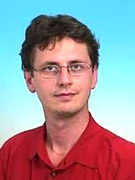 |
Jaroslav Mysiak is a senior researcher at Fondazione Eni Enrico Mattei, a research institute specialised in environmental economics and natural resource management. He graduated in Forestry Economics and Management from the Technical University of Zvolen ( Slovakia ) and received a PhD from the University of Göttingen ( Germany ). His past academic positions include teaching and carrying out research at Technical University Zvolen ( Slovakia ), University of Göttingen ( Germany ), University of Padova ( Italy ), University of Milan ( Italy ), UFZ Centre for Environmental Research Leipzig-Halle, GmbH ( Germany ) and Fondazione Eni Enrico Mattei ( Italy ). He was awarded with various mobility grants such as Marie Curie Fellowship, German Academic Exchange Service's triennial grant, Tempus mobility grant and several short-term grants from European Science Foundation. Jaroslav's research interests include geographic information science, environmental policies, Decision Support Systems development, economic valuation, environmental policies, uncertainty and risk assessment, and decision theory. Currently, he is chair of the Marie Curie Fellowship Association – an international and multidisciplinary network of mobile researchers, founded to promote the Marie Curie Actions programme and to provide a networking structure to Marie Curie fellows. |
| Maziar Nekovee Complexity Group, BT Research |
|
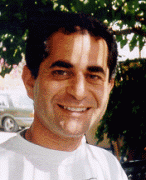 |
Maziar Nekovee is a senior research scientist at BT Group’s Mobility Research Centre, where he leads research on mathematical and computational modelling of complex ICT networks and next generation wireless communication systems. Maziar was born and raised in Iran and moved to the Netheralnds when he was 19. He obtained his first degree in electrical engineering (cum laude) from Delft University of technology, and his PhD in theoretical and computational physics from the University of Nijmegen, both in the Netherlands. After completing his PhD in 1995 he moved to London where he held a number of research fellowship posts (including a Marie Curie Fellowship) at Imperial College and Queen Mary College, prior to joining BT Research in 2001. Maziar was a member of the first elective board of the Marie Curie Fellowship Association, and vice chair of the MCFA for a number of years. He has published over 40 papers in international peer-reviewed journals and conferences, and holds a number of patents. He was the funding editor of MCFA News and has written extensively on broader issues in science. See, for example 'Who Wants to Work in Industry' and 'The Postdoctoral System Needs Reform'. |
| István Palugyai European Union of Science Journalists' Associations/Science editor Nepszabadsag |
|
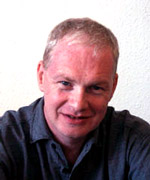 |
Istvan Palugyai (51) has a MS (biology, behaviour genetics) and is a journalist working as the senior science editor for Népszabadság (the biggest and most influential serious daily paper in Hungary) where since 1991 he has been responsible for the weekly science, medicine, environment, technology and the IT columns). He is a former TV moderator, editor and producer of popular science programs, science reporter of other Hungarian daily (Magyar Hírlap, 1979-1991) and he is President of the Club of Hungarian Science Journalists (CHSJ). Istvan is also leader of the only existing science and environmental journalism training course in Hungary organized by the CHSJ in addition to being the President of the European Union of Science Journalist's Associations (EUSJA), Vice President of the World Federation of Science Journalists (WFSJ) and was Chief Organizer of the Second World Conference of Science Journalists held in Budapest during 1999. |
| Fabien Petitcolas External Research Office, Microsoft Research |
|
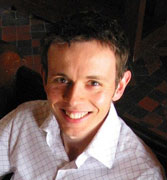 |
Fabien Petitcolas is with the External Research Office at Microsoft Research in Cambridge, England. He heads the Intellectual Capital Development group which is driving a number of programmes to support outstanding scientists in Europe, the Middle East and Africa, including the Microsoft Research European PhD Scholarship and Fellowship programmes. Before joining the External Research Office, Fabien was a researcher within the security research group. |
| Kate Runeberg Senior Advisor, Nordic Council of Ministers and Docent, Helsinki University, Finland |
|
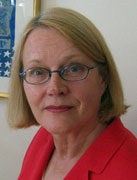 |
Kate Runeberg is senior adviser in the area of research at the Nordic Council of Ministers and is until July 2006 on a six month loan to NordForsk/Nordic Research Board. The Nordic Council of Ministers (NCM), formed in 1971, is the forum for Nordic governmental co-operation. The NCM brings together ministers from Denmark, Finland, Iceland, Norway and Sweden as well as the autonomous territories of Greenland, the Faeroe Islands and Åland. She has a background in science, a PhD in microbiology from SUNY at Stony Brook and is docent in molecular microbiology at Helsinki University. She did research for many years, development of new vaccines using gene technology. She has for the last thirteen years had administrative positions at the Regional Office for Europe of World Health Organization, the Finnish National Public Health Institute, the Nordic Academy for Advanced Study and the Nordic Council of Ministers. She has been an Independent observer for the Commission of the evaluation process for the so called Marie Curie mobility activities. She has lived and worked in six countries (Finland, Denmark, Norway, France, Luxembourg and U.S.A.). |
| Chris Smith Cambridge University |
|
 |
Chris Smith is a specialist registrar in virology and clinical lecturer in virology in the Department of Pathology at Cambridge University. In 2001 he completed a medical degree and a PhD in herpes virology on the Cambridge University MB/PhD programme. Chris started The Naked Scientists Radio Show and its predecessor, ScienceWorld. In the future he hopes to earn enough money to get someone to take a decent photo of him (but he accepts there are limits to what technology can do)! |
| Marco Stoffella University of Venice |
|
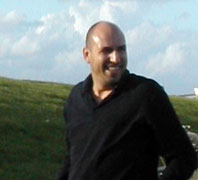 |
Marco Stoffella was born in northern Italy in 1971. At the age of 18 he went to University of Pisa. He was an Erasmus student at University College of Dublin for a semester, and for another semester he was at the J.W. Goethe University of Frankfurt am Main, Germany. He has an MA in Medieval History at the University of Pisa with a dissertation on the Early Medieval History of Pisa and its territory during the 10th and the 11th century. He had also experiences as an archaeologist, as a teacher, as well as an archivist. He is now collaborating with an Archaeological Museum in Tuscany in order to create a Virtual Archive to be used by scientists but also for didactics with students and schools. He just finished his PhD at University of Cà Foscari - Venice working on the history of Lucca and Pisa (Western Tuscany) between the 8th and the 11th century. He spent part of his last PhD year at University of Bielefeld, Germany with a Marie Curie Fellowship and there he developed part of his dissertation, focusing on the relationships between Tuscany and Bavaria in the Early Middle Ages. Through the European Doctorate - Marie Curie Fellowship, he held a Conference at University College of London and was invited speaker at the Marie Actions International Conference hold last September in Pisa and Livorno. He is now continuing to investigate the relationships between Bavaria and Tuscany as a Research Project, and has already written some articles on this subject. His PhD thesis will be soon published as a book. |
| Preben Svendsen Polytec R&D Foundation |
|
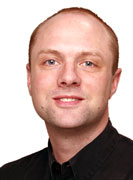 |
Preben Svendsen is the manager of the Gas Technology Department at Polytec R&D Foundation. He has a BEng (Hons) in Chemical Engineering from UMIST (2000). At Polytec his technical projects are mainly concerned with pipeline operation, process simulation and experimental multi-phase technology. In addition he works with portfolio management, market development and key account management. This work also involves preparing project proposals, together with both academic and industrial partners, for the Norwegian Research Council and the EU.
|
| Piotr Swiatek COST (European Cooperation in Science and Technology) |
|
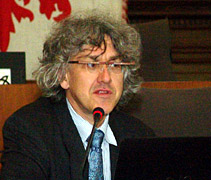 |
Piotr Swiatek, born 1953, is a German physicist of Polish origin. He got his Ph.D. in Solid State Physics from University of Cologne. From 1986 to 2001 he worked as physicist at the Research Centre Juelich, Germany. He was then Project Manager of "Fit for Europe" run by the European Liaison Office of German Research Organisations (KoWi) until 2003. "Fit for Europe" was a project supporting Central and Eastern European Countries (CEEC), financed by the "Stifterverband für die Deutsche Wissenschaft" and coordinated by KoWi. The aim of "Fit for Europe" was to transfer the practical experience of KoWi to the partners in the CEEC, and to implement measures that would enhance their participation in EU Framework Programmes. Currently, Piotr Swiatek is a Science Officer at COST (European Cooperation in Science and Technology) in Brussels. COST is one of the longest-running EU-financed instruments supporting co-operation among scientists and researchers across Europe. COST now has 35 member countries and enables scientists to collaborate in a wide spectrum of activities in research and technology. |
| Jenny Wetton Museum of Science & Industry in Manchester |
|
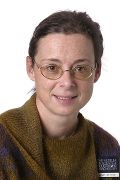 |
Jenny Wetton is the Curator of Science at the Museum of Science and Industry in Manchester (MSIM). She studied Ancient History and Archaeology at the University of Birmingham, graduating in 1983. She then became an Assistant Curator at the National Maritime Museum, Greenwich, in the Department of Navigation. In 1985, she became Assistant Curator at MSIM, later taking over responsibility for the science collections. She passed the Museums Association's Diploma and is an Associate of the MA. Jenny has built up the Museum's collections of scientific instruments, computing artefacts and telecommunications equipment and has developed a number of museum exhibitions, the most recent being 'Manchester Science: discoveries that changed the world' which opened in 2004. She has also worked with enthusiasts in the Manchester area to conserve historic computers and manages the re-built 'Baby' computer, housed at the Museum and demonstrated regularly. |